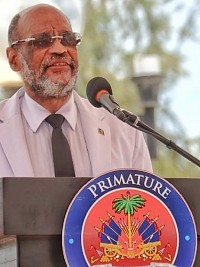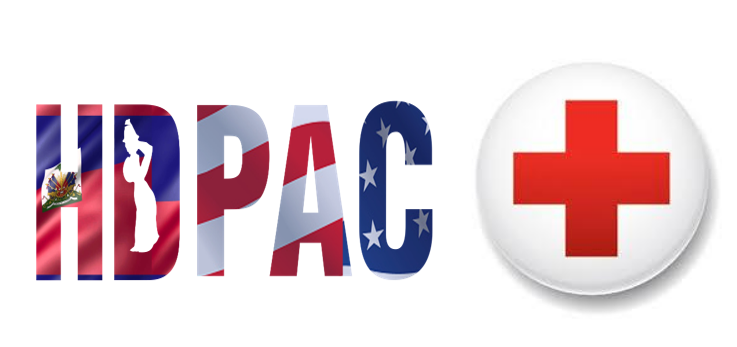By: Nathaniel Ballantyne
TRUENEWSBLOG: Criminal gangs are fighting each other and seizing territory in the capital of Port-au-Prince with a new intensity and brutality. The violence has horrified many who feel the country is swiftly unraveling as it tries to recover from the July 7 assassination of President Jovenel Moïse and the United Nations prepares to debate the future of its longtime presence in Haiti.
Prime Minister Ariel Henry has remained largely quiet amid the escalating gang violence, while Frantz Elbé, Haiti’s new police chief, said dozens of gang members have been arrested and another 94 killed in clashes with police since he took over the department six months ago. Nearly 5,000 suspects have been accused of crimes including murder and kidnapping, Elbé said.
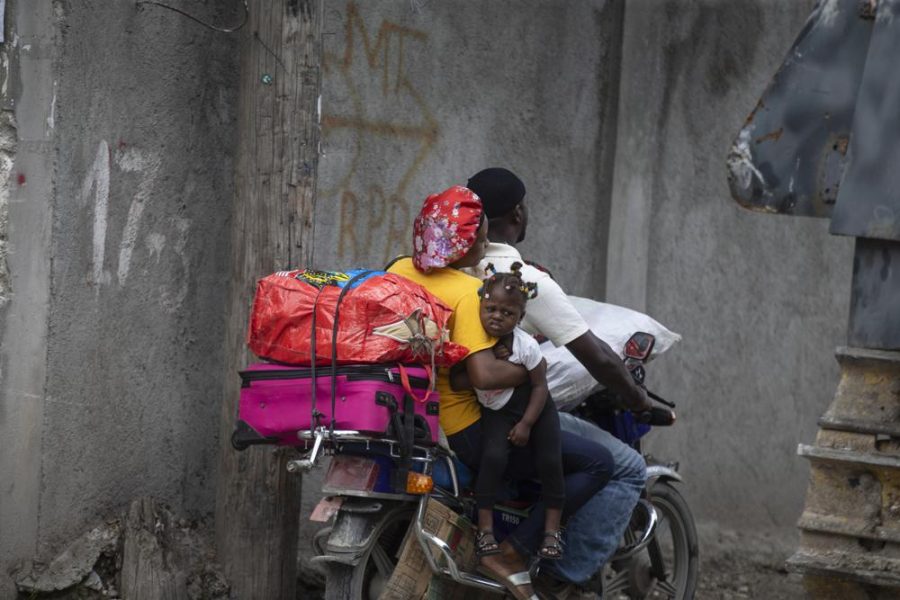
“I am going to continue to track down the criminals,” he pledged in a May 9 news conference, adding that Haiti’s understaffed and under-resourced police department of roughly 11,000 officers for a country of more than 11 million people was receiving training and equipment from the international community
Experts say the scale and duration of gang clashes, the power criminals wield and the amount of territory they control has reached levels not seen before.
Gangs have forced schools, businesses and hospitals to close as they raid new neighborhoods, seize control of the main roads connecting the capital to the rest of the country and kidnap victims daily, including eight Turkish citizens still held captive, authorities say.
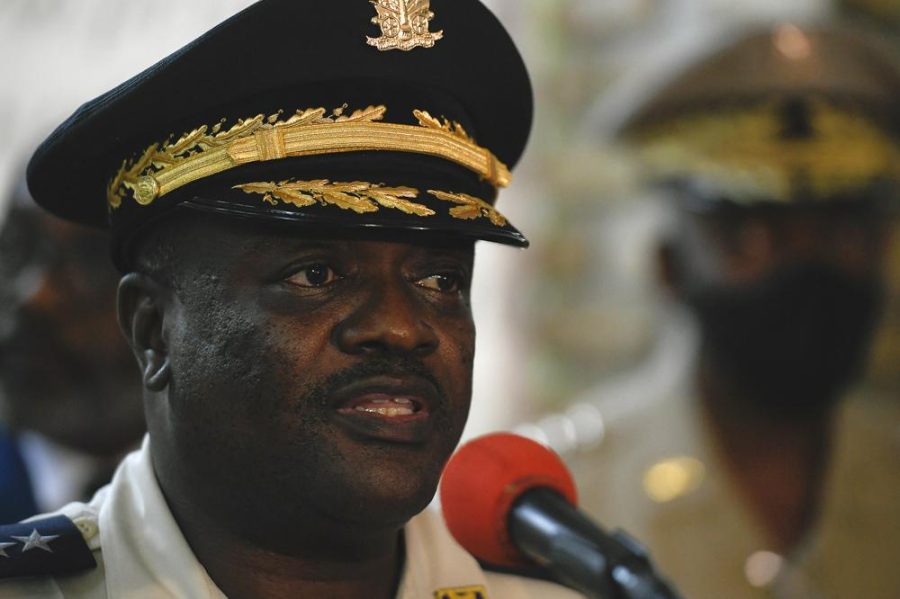
The ongoing violence and kidnappings have prompted hundreds of Haitians to flee their country, often a deadly move. At least 11 Haitians died and 36 others were rescued when their human smuggling boat overturned near Puerto Rico this month. Dozens of others have died at sea in recent months.
Another concern is the lack of housing not only for the estimated 9,000 families recently forced to flee their homes, but also for the estimated 20,000 others displaced last year who are still living in overcrowded, dirty government shelters. At the same time, the country is struggling to help roughly 20,000 Haitians the administration of U.S. President Joe Biden has deported in recent months amid sharp criticism.
Gangs also are recruiting more children than before, arming them with heavy weapons and forming temporary alliances with other gangs in attempts to take over more territory for economic and political gain ahead of the country’s general elections, said Jaime Vigil Recinos, the United Nations’ police commissioner in Haiti.
Over the coming hours and days, the bodies of nearly 200 men, women and children — shot, burned or mutilated with machetes by warring gangs — were found in that part of Haiti’s capital.
At least 92 civilians and 96 suspected gang members were killed between April 24 and May 16, with another 113 injured, 12 missing and 49 kidnapped for ransom, according to the U.N. Office of the High Commissioner for Human Rights. The office warned that the actual number of people killed “may be much higher.”
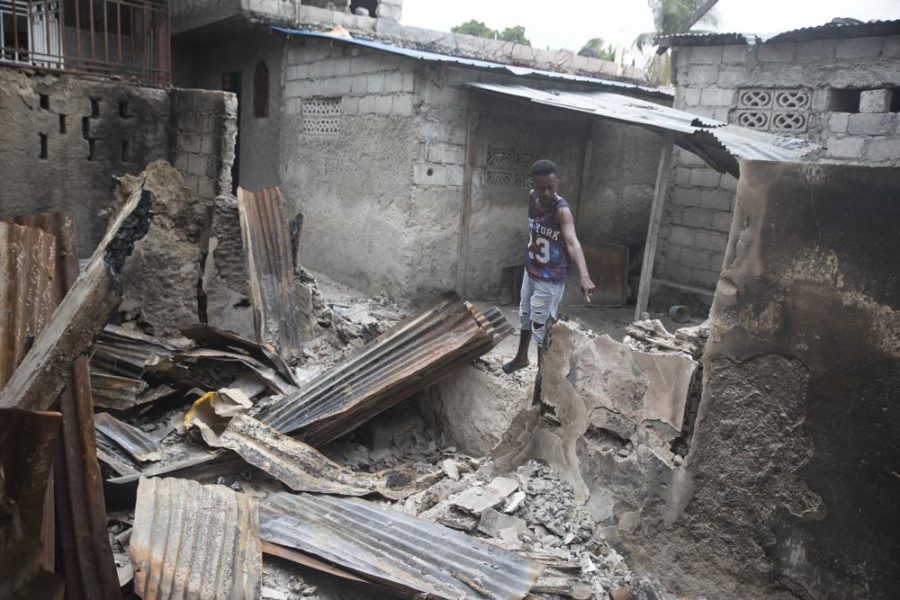
Gangs also gang-raped children as young as 10 and set fire to at least a dozen homes, forcing some 9,000 people to flee and seek temporary shelter in churches, public parks and shuttered schools, U.N. officials said.
Haiti’s National Human Rights Defense Network said some victims were decapitated while others were thrown into wells and latrines. Gangs posted pictures of the gruesome scenes on social media to further terrorize people. The network said that most women and girls were raped before being killed.
“Armed violence has reached unimaginable and intolerable levels in Haiti,” Michelle Bachelet, the U.N. High Commissioner for Human Rights, said in a May 17 statement.
Bruno Maes, UNICEF’s representative in Haiti, told the AP that one growing concern is the lack of access to basic things like water, food and medicine because people remain trapped in certain areas while gangs continue to fight, noting that malnutrition is on the rise, affecting 1 in 5 children in the Cité Soleil neighborhood alone.
“We are really seeing a strangulation of Port-au-Prince,” he said, adding that UNICEF has been forced to use a helicopter and now a boat to try to reach those most in need.
About 1,700 schools have shuttered amid the spike in gang violence, leaving more than half a million children without an education, with the directors of some schools unable to keep paying gangs to ensure students’ safety, the U.N. said. Efforts are underway to set up an FM radio station dedicated to broadcasting classes, Maes said.
“It’s very saddening for us that children who are willing to learn and teachers willing to teach cannot do so because they feel unsafe,” he said.
At least 48 killings were reported in the neighborhood of Butte Boyer, which Edna Noël Marie fled with her husband and three children when gunfire erupted in late April.
The Butte Boyer neighborhood, where the smell of charred homes and decaying bodies spread for several blocks. Dogs gnawed on victims’ remains.
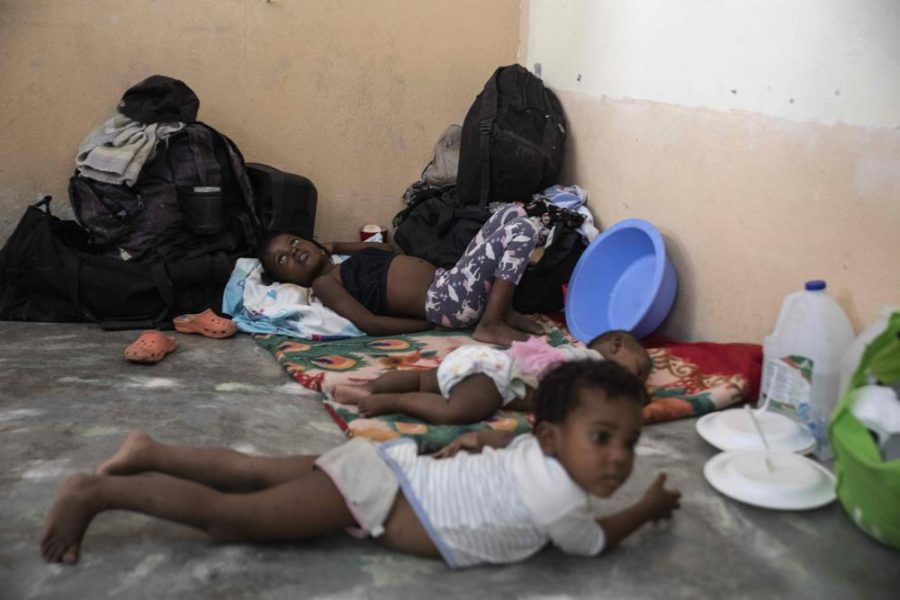
Several walls and gates were scrawled with “400 Mawozo,” a testament to the presence of a gang believed to have kidnapped the Turkish citizens in early May and 17 members of a U.S.-based missionary group last year, demanding $1 million in ransom and holding most for two months.
Nailed to a wooden post, a picture of a man killed during the recent gang violence flapped in the wind. The sign underneath read, “Thanks to the government of my country.”
It was once a quiet neighborhood that Lucitha Gason, 48, knows she won’t return to again. She was getting ready for church when the explosion of gunfire in late April forced her to abandon her home. She’s been staying at a shuttered school, but the owner recently demanded that she and dozens of other Haitians find another place to sleep.
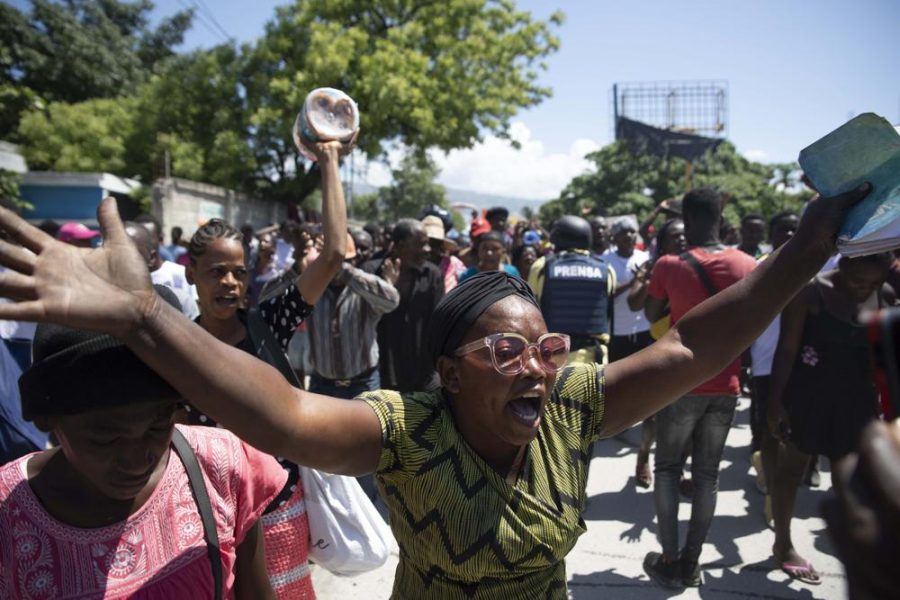
Gason is now trying to figure out where to go since she can’t afford to leave the country.
“We can’t count on the government. We can’t count on organizations. They’re all making promises that aren’t coming through,” she said. “Here in Haiti, you really have to depend on yourself and what you can do for yourself. There’s no such thing as what the country can do for you.”

